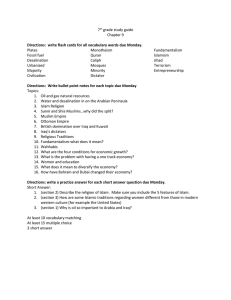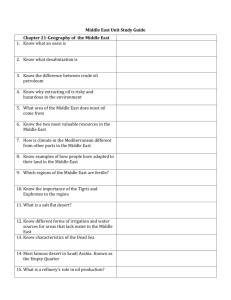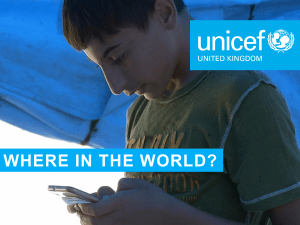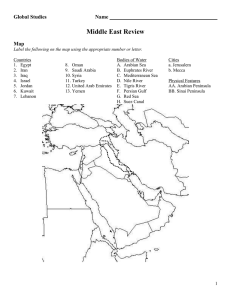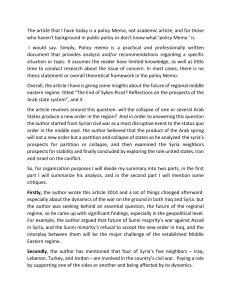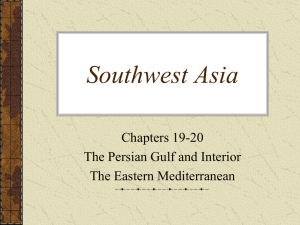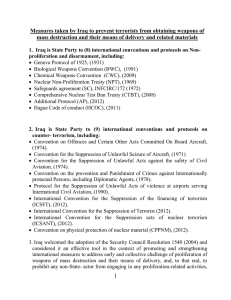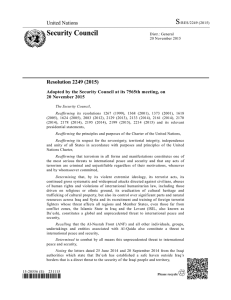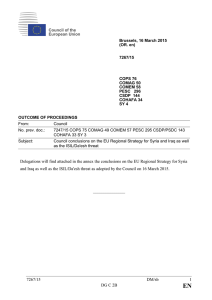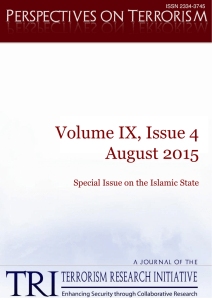International Relations
advertisement
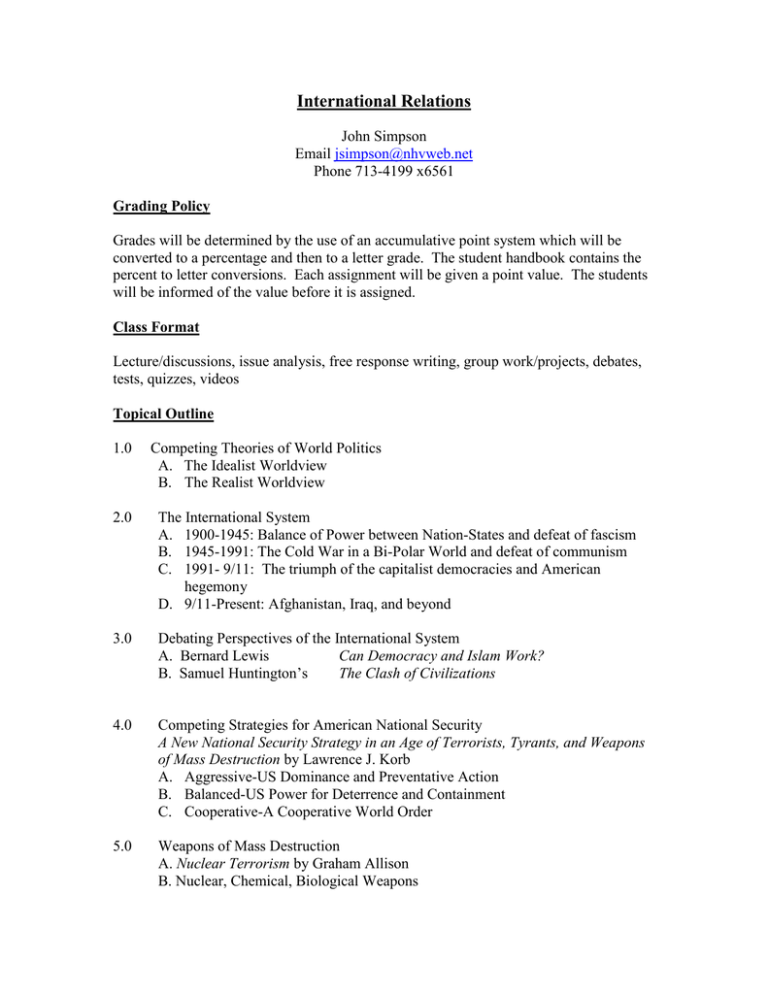
International Relations John Simpson Email jsimpson@nhvweb.net Phone 713-4199 x6561 Grading Policy Grades will be determined by the use of an accumulative point system which will be converted to a percentage and then to a letter grade. The student handbook contains the percent to letter conversions. Each assignment will be given a point value. The students will be informed of the value before it is assigned. Class Format Lecture/discussions, issue analysis, free response writing, group work/projects, debates, tests, quizzes, videos Topical Outline 1.0 Competing Theories of World Politics A. The Idealist Worldview B. The Realist Worldview 2.0 The International System A. 1900-1945: Balance of Power between Nation-States and defeat of fascism B. 1945-1991: The Cold War in a Bi-Polar World and defeat of communism C. 1991- 9/11: The triumph of the capitalist democracies and American hegemony D. 9/11-Present: Afghanistan, Iraq, and beyond 3.0 Debating Perspectives of the International System A. Bernard Lewis Can Democracy and Islam Work? B. Samuel Huntington’s The Clash of Civilizations 4.0 Competing Strategies for American National Security A New National Security Strategy in an Age of Terrorists, Tyrants, and Weapons of Mass Destruction by Lawrence J. Korb A. Aggressive-US Dominance and Preventative Action B. Balanced-US Power for Deterrence and Containment C. Cooperative-A Cooperative World Order 5.0 Weapons of Mass Destruction A. Nuclear Terrorism by Graham Allison B. Nuclear, Chemical, Biological Weapons 6.0 The Crisis of Islam by Bernard Lewis A. Origins of Islam B. Moderate vs Fundamentalist Islam C. ISIS- The Islamic State of Iraq/Syria 7.0 International Conflict-Specific Areas of Concern A. B. C. D. E. F. G. H. I. J. K. L. M. N. O. P. Q. ISIS-The Islamic State of Iraq/Syria Russia v Ukraine Al Qaeda Saudi Arabia Pakistan Afghanistan Iraq Iran Syria Israeli/Palestinian Conflict North Korea China Europe Africa Latin America Chechnya The Arab Spring- The Good, the Bad, and the Ugly 8.0 The United Nations and International Institutions A. Strengths and weaknesses 9.0 Relevant Current Events Issues/Debates
